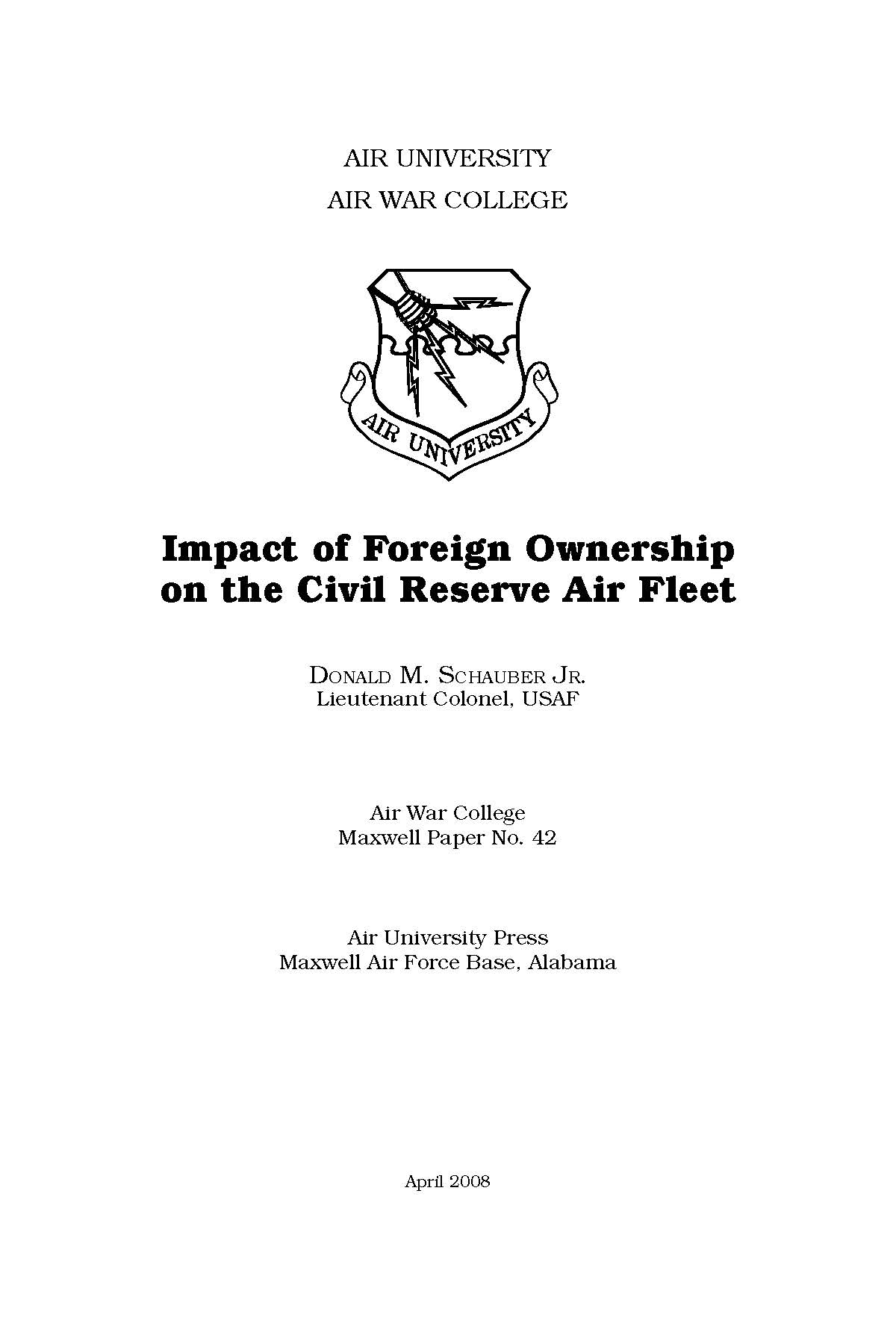 Since the beginning of manned flight, the movement of personnel and equipment by air has been critical to US national security. This realization led to the establishment of the Civil Reserve Air Fleet (CRAF) in 1951 to augment the military airlift fleet in times of national emergency. In the 56 years following its inception, the CRAF has proven itself numerous times as a critical enabler to US military strategy. Recent changes within the military and trends toward a globalized economy have placed the Department of Defense and US airlines on diverging paths. The purpose of this paper is to examine these changes and their possible impact on US national security. Following a basic overview of the CRAF and its criticality, the paper examines the conflict of interest between the national economy and national security regarding the push to liberalize airline ownership and control. The paper concludes by examining possible options and recommendations that help address these concerns to ensure that the CRAF program remains a viable and integral part of the US military capability.
Since the beginning of manned flight, the movement of personnel and equipment by air has been critical to US national security. This realization led to the establishment of the Civil Reserve Air Fleet (CRAF) in 1951 to augment the military airlift fleet in times of national emergency. In the 56 years following its inception, the CRAF has proven itself numerous times as a critical enabler to US military strategy. Recent changes within the military and trends toward a globalized economy have placed the Department of Defense and US airlines on diverging paths. The purpose of this paper is to examine these changes and their possible impact on US national security. Following a basic overview of the CRAF and its criticality, the paper examines the conflict of interest between the national economy and national security regarding the push to liberalize airline ownership and control. The paper concludes by examining possible options and recommendations that help address these concerns to ensure that the CRAF program remains a viable and integral part of the US military capability.
Author(s) • Lt Col Donald M. Schauber Jr., USAF
Year • 2008
Pages • 36
ISSN • 2575-7539
AU Press Code • MP-42